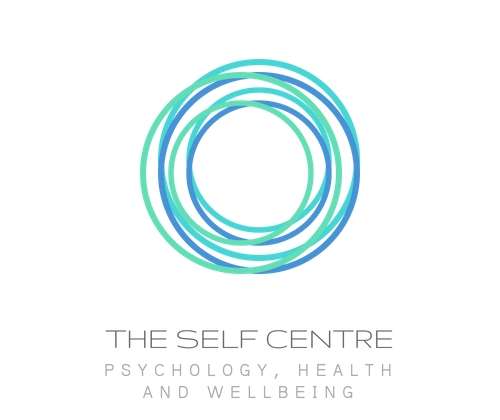Are you ready to take the first step?
We have appointments available online and in person now.
We offer a complimentary and confidential 15-minute initial consultation with Principal Psychologist Lyndsay Babcock to help you find the best psychologist for you.
Are you ready to take the first step?
We have appointments available online and in person now.
We offer a complimentary and confidential 15-minute initial consultation with Principal Psychologist Lyndsay Babcock to help you find the best psychologist for you.
Telehealth
Every psychologists in our team offers video sessions, so you can see you therapist without having to be in our practice. We are very experienced in building strong therapeutic relationships online with our clients. In fact, many of our clients prefer to see us online rather than in person because it is so much more convenient in our busy lives.
Child and Adolescence
At The Self Centre, our team comprises experienced clinicians with special interests in child and adolescent care, ready to assist your child in overcoming the many challenges they might be facing.
We collaborate with you, your child, and relevant parties (such as schools and other allied health professionals) to create a tailored treatment plan aimed at fostering your child’s well-being.
Our goal is to equip you and your child with the necessary skills and strategies to effectively manage symptoms, understand and express their emotions, and enact positive behavioural changes.
COMMON CONCERNS WE SUPPORT:
| Adjustment Disorder (ie recent divorce or major change at home/school) | Fears & Phobias |
| ADHD (assessment & Treatment) | Grief & Loss |
| Anger Management | Learning Difficulties |
| Anxiety & Stress | LGBTQIA+ Support (incl. Gender Dysphoria) |
| Behavioural Concerns (including School Can’t/Refusal, Oppositional Defiance, Screen Addiction) | Parenting Support |
| Bullying |
Trauma |
| Depression |
Social Skills |
Psychology & Counselling Therapy Available
CBT
Our Psychologists use Cognitive Behavioural Therapy (CBT) to help you and your child gain a deeper understanding of their thoughts, emotions, and actions.
CBT focuses on deconstructing unhelpful thought processes, emotions, and behaviours while reconstructing beneficial thought patterns and behaviours.
Play Therapy
Our skilled child psychologists use Play Therapy during sessions with your child, creating a safe environment for them to express themselves naturally.
Through this method, your child can freely communicate, and they can put into practice the new skills they acquire during therapy.
Social Skills Training
Our child psychologists work with your child to pinpoint and cultivate practical skills that support and enhance their interpersonal interactions.
This social skills training can be conducted through individual sessions as well as group settings, focusing on honing your child’s communication, problem-solving, listening, conflict resolution, and decision-making proficiencies.
EMDR
EMDR (Eye Movement Desensitization and Reprocessing) is a psychotherapy technique that helps individuals process traumatic experiences by using bilateral stimulation to alleviate distressing symptoms and promote emotional healing.
Our EMDR Psychologist works with adolescents and adults to help them safely process trauma and distressing feelings.
Mindfulness
Our Psychologists can help your child develop Mindfulness skills. Mindfulness strategies help your child slow down, increase awareness of their thoughts, emotions, and environment, and enhance their ability to concentrate. Additionally, mindfulness can assist your child in managing stress and addressing negative thought patterns.
Parenting Training
Parenting a distressed child can very challenging, draining and worrisome for parents.
Our psychologists can support you as well by actively engage you in the therapeutic process, ensuring that your child can seamlessly apply the strategies learned in therapy to real-world scenarios.
Our team is committed to collaborating with you by enhancing your existing skills and acquiring new ones to effectively support your child as they progress through therapy.
Psychology for Adults
The Self Centre Psychologists are dedicated to working with adults of all age groups. We aim to help people develop better self-awareness and insight, learn new skills to better manage symptoms, and apply helpful strategies for a healthy and fulfilling life.
Our professional and caring psychologists build warm and genuine relationships with our clients and collaborate with them to help identify and address their unique needs and goals.
COMMON CONCERNS WE SUPPORT:
| Adjusting to major life changes & challenges (ie moving, major illness, changing jobs) | Obsessive Compulsive Disorder (OCD) |
| ADHD (Assessment & Support) | Learning Difficulties |
| Anger Management | LGBTQIA+ Support (incl. Gender Dysphoria) |
| Anxiety & Stress | Parenting Support |
| Bi-Polar |
Post-Natal Support |
| Bullying | Post-Traumatic Stress |
| Chronic Pain | Trauma |
| Depression |
Relationship Issues |
| Fears & Phobias |
Substance misuse |
| Grief & Loss |
Psychology & Counselling Therapy Available
CBT
Our Psychologists use Cognitive Behavioural Therapy (CBT) to help you and your child gain a deeper understanding of their thoughts, emotions, and actions.
CBT focuses on deconstructing unhelpful thought processes, emotions, and behaviours while reconstructing beneficial thought patterns and behaviours.
Mindfulness
Our Psychologists can help you develop Mindfulness skills. Mindfulness strategies help you learn to slow down, increase awareness of their thoughts, emotions, and environment, and enhance your ability to concentrate.
Additionally, mindfulness can assist you in managing stress and addressing negative thought patterns.
DBT
Dialectical Behavioural Therapy (DBT) is an approach that helps individuals regulate their emotions, improve interpersonal relationships, and develop coping strategies, particularly for managing intense emotions and self-destructive behaviours.
Schema Therapy
Schema Therapy is a therapeutic approach that addresses deeply ingrained patterns in a person’s thinking, feeling, and behaviour, and focuses on reconfiguring of these patterns to promote emotional healing and improved mental health.
Attachment Therapy
Attachment therapy is a form of psychotherapy that seeks to enhance secure emotional bonds and address attachment-related issues by fostering healthier connections and communication patterns, particularly in the context of parent-child or caregiver relationships.
EMDR
EMDR (Eye Movement Desensitization and Reprocessing) is a psychotherapy technique that helps individuals process traumatic experiences by using bilateral stimulation to alleviate distressing symptoms and promote emotional healing.
Our EMDR Psychologist works with adolescents and adults to help them safely process trauma and distressing feelings.
ACT
Acceptance and Commitment Therapy (ACT) is a mindfulness-based therapy that aims to help individuals accept their thoughts and feelings while committing to actions aligned with their values, promoting psychological flexibility and well-being.
Psychodynamic Therapy
Psychodynamic therapy is a therapeutic approach that explores the unconscious influences on a person’s thoughts, emotions, and behaviours, emphasizing the role of early life experiences and unresolved conflicts in shaping one’s psychological well-being. This therapy aims to bring these underlying dynamics into awareness, promoting self-discovery and facilitating personal growth and healing.
Positive Psychology
Positive psychology is a field of psychology that focuses on the study and promotion of positive emotions, strengths, and well-being in individuals and communities, aiming to enhance life satisfaction and human flourishing.
Assessments for Children, Adolescents & Adults
Neuro-Affirming Support
At The Self Centre, we pride ourselves on being neuro-affirming psychologists, dedicated to providing compassionate and understanding support for people who are neurodivergent. Our approach recognises and respects the unique experiences and needs of people who are autistic, ADHD, and who have other neurodivergent traits.
Key Aspects of Our Neurodivergent-Affirming Approach:
Respect for Individual Differences: We celebrate the diverse ways in which people think, feel, and interact with the world, and tailor our support to honor these differences.
Strength-Based Perspective: We focus on identifying and building upon your strengths and abilities, rather than solely addressing challenges.
Personalised Support: Our therapy and interventions are customised to fit your unique needs and preferences, offering a supportive and effective therapeutic experience.
Inclusive Environment: We aim to create a welcoming and inclusive space where all neurodivergent individuals can feel seen.
Empowerment and Advocacy: We work to empower you by providing tools and strategies that enhance your quality of life and advocate for your needs within various contexts.
Benefits of Our Neuro-Affirming Approach:
Enhanced Understanding: We aim to deepen your understanding of yourself and your neurodivergent traits, fostering self-acceptance and confidence.
Effective Strategies: We aim to offer practical strategies and coping mechanisms designed to support you.
Supportive Relationships: We work hard to establish meaningful therapeutic relationships that respect and affirm your neurodivergent identity.
If you’re seeking a supportive and affirming approach to therapy, our team (hyperlink to team page) at The Self Centre is here to help. Contact us to learn more about how we can assist you in embracing and thriving with your unique neurodivergence.
In addition to offering support we also provide opportunity for formal testing to help you better understand your neurodivergence. We offer testing for children 5+ through to adults who are curious about ADHD, learning disorders, and giftedness.
Please note: WE DO NOT WORK WITH NDIS
Assessments for Children, Adolescents & Adults
As trained psychologists, we use a variety of assessment tools and tests to understand and observe people’s behaviours, thoughts, and emotions.
These instruments can play a pivotal role the diagnostic process, aiding in the identification of specific mental health conditions or challenges an individual may be facing.
Additionally, assessment tools offer invaluable insights into an individual’s cognitive functioning, personality traits, and emotional well-being.
This can guide the development of personalised treatment plans, enabling us to tailor therapeutic interventions to the unique needs and circumstances of each client.
COMMON TESTS AND ASSESSMENTS:
| ADHD | Giftedness |
| Learning Difficulty | Behavioural Concerns |
Initial consultation
- An initial consultations takes place with a parent or primary caregiver. This session is designed for the Psychologist to gather information about the child’s background, family and school functioning, and relevant developmental history.
Testing
- These sessions are where your psychologist will administer the recommended and agreed upon assessments. Session length will vary depending on the assessments required and will be discussed in advance.
Feedback session
- The parent/carer feedback session is when the results of the tests are presented and explained to the primary carer/parents. This is when treatment recommendations are made, and any questions related to the testing are answered
Coaching for Adults
COMMON CONCERNS WE SUPPORT:
| Menopause Support | Relationships |
| Work Life Balance | Goal Setting |
| Improved Self-Awareness | Self-Confidence/Self-Esteem |
| Stress Management | Personal Growth & Development |
| Burn-out Prevention Skills | Professional Coaching for Health Professionals |
Coaching Models Used:
Positive Psychology – Positive psychology is a field of psychology that focuses on the study and promotion of positive emotions, strengths, and well-being in individuals and communities, aiming to enhance life satisfaction and human flourishing.
Mindfulness – Our Psychologists can help you develop Mindfulness skills. Mindfulness strategies help you learn to slow down, increase awareness of their thoughts, emotions, and environment, and enhance your ability to concentrate.
Additionally, mindfulness can assist you in managing stress and addressing negative thought patterns.
ACT – Acceptance and Commitment Therapy (ACT) is a mindfulness-based therapy that aims to help individuals accept their thoughts and feelings while committing to actions aligned with their values, promoting psychological flexibility and well-being.
Coaching Models – A coaching model is a structured framework or approach used by coaches to guide and organize coaching sessions, helping clients clarify their goals, develop action plans, and achieve desired outcomes.
Telehealth
Telehealth or online video or phone sessions have become popular and easy to use since COVID.
Research has demonstrated that these online sessions are as effective for treatment outcomes as in-person sessions are, and are very easy for people to access support from a highly skilled psychologist from the comfort of their own home, remote areas or without having to drive to access services.
We offer Telehealth to children, teens and adults for clinical psychology or psychological assessments across Australia at times that are convenient and flexible.
Our psychologists at The Self Centre have years of experience working online with people, and are very skills at helping people feel comfortable quickly.
Telehealth psychology services at The Self Centre offer the opportunity for people to access specialised mental health care providers who may not be geographically situated in their local area.
How are you Feeling?
Are you experiencing any of the below symptoms? Learn more about these symptoms and how The Self Centre can help.
Anxiety
persistent and excessive worry, heightened restlessness, fatigue, difficulty concentrating, irritability, muscle tension, sleep disturbances, and physical symptoms such as rapid heartbeat, shallow or shortness of breath, and sweating, often accompanied by a sense of dread or impending danger.
Sleep Difficulties
difficulty falling asleep, frequent awakenings during the night, increased dreams/nightmares, non-restorative sleep, excessive daytime fatigue, and impaired cognitive functioning, which can significantly affect one’s overall quality of life.
Relationship Issues (work, romantic, friendship, parenting)
frequent conflicts, communication breakdown, emotional distance, lack of intimacy, and decreased satisfaction in the relationship, impacting the quality and stability of the relationship
Depression
persistent feelings of sadness, hopelessness, loss of interest or pleasure in once-enjoyable activities, changes in appetite and sleep patterns, fatigue, and difficulty concentrating.
Stress and Burnout
stress and burnout occur when prolonged work pressure, responsibilities, and lack of self-care lead to physical and emotional exhaustion. Common signs include chronic fatigue, irritability, reduced productivity, and a sense of detachment from work and personal life
ADHD
Attention-Deficit/Hyperactivity Disorder (ADHD) include difficulties in sustaining attention, impulsivity, hyperactivity, and often, challenges in organisation and time management
Trauma
Intrusive thoughts, avoidance, changes in thinking and mood, hyperarousal, emotional numbing, heightened emotional reactions, physical symptoms and impacts on relationship.
Anxiety
An anxiety disorder is a mental health condition that involves a heightened and persistent state of anxiety, which goes beyond the normal and occasional worries or fears that individuals experience. This condition is marked by an overwhelming and often irrational apprehension related to various situations, objects, or concerns. These concerns may range from everyday responsibilities and relationships to specific phobias, and they can manifest as a constant and disruptive presence in one’s thoughts and emotions.
The hallmark of anxiety disorders is the inability to control or manage these anxious feelings, even when there is no apparent or immediate threat. The excessive nature of the worry and fear is often disproportionate to the actual circumstances. This heightened state of anxiety can lead to various physical and psychological symptoms, including restlessness, muscle tension, rapid heart rate, and cognitive impairments, such as difficulty concentrating.
Left untreated, anxiety disorders can significantly impact an individual’s daily life, resulting in distress and impairment in various aspects of functioning. People with anxiety disorders may struggle with work or academic performance, social interactions, and overall quality of life.
There are several types of anxiety disorders, including:
Generalized Anxiety Disorder (GAD): Characterized by excessive and persistent worry about various aspects of life, often without a specific trigger.
Panic Disorder: Involves recurrent and unexpected panic attacks, accompanied by intense fear and physical symptoms such as rapid heart rate and shortness of breath.
Social Anxiety Disorder (Social Phobia): Involves intense fear and avoidance of social situations or performance settings due to a fear of judgment or embarrassment.
Specific Phobias: These are intense and irrational fears of specific objects or situations, such as heights, spiders, or flying.
Obsessive-Compulsive Disorder (OCD): Involves intrusive, unwanted thoughts (obsessions) and repetitive behaviours or mental acts (compulsions) aimed at reducing anxiety.
Post-Traumatic Stress Disorder (PTSD): Occurs after exposure to a traumatic event and is characterized by flashbacks, nightmares, and severe anxiety symptoms.
Separation Anxiety Disorder: Often seen in children, it involves excessive fear or distress when separated from attachment figures.
Selective Mutism: Primarily seen in children, it is characterized by the inability to speak in specific social situations or with specific individuals.
Agoraphobia: Involves a fear of being in situations where escape may be difficult or help might not be available if a panic attack or embarrassing symptoms occur.
Each of these anxiety disorders presents with its unique set of symptoms and challenges, and they can significantly impact an individual’s daily life and functioning. It’s important to seek professional help for an accurate diagnosis and appropriate treatment.
Sleep Difficulties
Sleep difficulties encompass a range of issues that affect an individual’s ability to fall asleep, stay asleep, or achieve restorative sleep. These problems can have significant impacts on physical health, mental well-being, and overall quality of life.
Sleep difficulties can be categorised into two main types:
1. Insomnia: This is characterised by difficulty falling asleep, staying asleep, or waking up too early and not being able to go back to sleep. Insomnia can be acute (short-term) or chronic (long-term) and can be influenced by stress, anxiety, medical conditions, or lifestyle factors.
2. Sleep Disorders: These include a variety of conditions that disrupt normal sleep patterns, such as sleep apnoea, restless legs syndrome, narcolepsy, and parasomnias (e.g., sleepwalking, night terrors). Each disorder has its own specific causes and symptoms but generally leads to poor sleep quality and daytime impairment.
Sleep difficulties can lead to a wide range of symptoms and impairments, affecting an individual’s physical health, cognitive functioning, mood, and daily life. Common symptoms include:
- Difficulty falling or staying asleep
- Frequent awakenings during the night
- Waking up feeling unrefreshed
- Daytime fatigue or sleepiness
- Irritability or mood disturbances
- Difficulty concentrating or remembering
- Increased risk of accidents or errors
Treatment for sleep difficulties often involves lifestyle changes, behavioural therapies, and sometimes medication. Common therapeutic approaches include Cognitive Behavioural Therapy for Insomnia (CBT-I), sleep hygiene education, relaxation techniques, and, in some cases, medication prescribed by a healthcare professional.
It’s crucial for individuals experiencing sleep difficulties to seek professional help for an accurate diagnosis and tailored treatment plan. With appropriate care and support, individuals can achieve better sleep patterns, improved daytime functioning, and a higher quality of life.
(If you or someone you know is in an emergency or needs urgent attention, do not book a session. Please proceed to your nearest hospital or call 000.)
Sleep difficulties are a common issue that can have a profound impact on an individual’s overall health and well-being. Addressing sleep problems through professional support and appropriate treatment is essential for achieving restful and restorative sleep.
Depression
A mood disorder is a category of mental health conditions characterized by persistent and significant disturbances in a person’s emotional state or mood. These disorders involve extreme and prolonged changes in mood that go beyond the usual fluctuations in emotional well-being.
Mood disorders can be categorized into two main types:
- Depressive Disorders: These include conditions where the primary feature is a depressed or low mood. Examples of depressive disorders include major depressive disorder (clinical depression), persistent depressive disorder (dysthymia), and disruptive mood dysregulation disorder (DMDD), among others.
- Bipolar and Related Disorders: These disorders involve cycles of mood fluctuations, including episodes of depression and periods of mania or hypomania. Bipolar I disorder and bipolar II disorder are examples of mood disorders within this category.
Mood disorders can lead to a wide range of symptoms and impairments, affecting an individual’s emotional well-being, cognitive functioning, relationships, and daily life.
Treatment for mood disorders often involves psychotherapy, medication, or a combination of both, tailored to the specific diagnosis and needs of the individual. Mood disorders are treatable, and many people with these conditions can lead fulfilling lives with appropriate care and support.
(If you or someone you know is in an emergency or needs urgent attention do not book a session, please proceed to your nearest hospital or call 000)
A depressive disorder, often referred to as clinical depression or major depressive disorder, is a mental health condition characterized by persistent and profound feelings of sadness, hopelessness, and a lack of interest or pleasure in activities that were once enjoyable.
Depressive disorders encompass a range of conditions that affect an individual’s mood, thoughts, and physical well-being. These disorders can vary in terms of severity and duration, but they typically result in significant emotional and functional impairments.
Symptoms of a depressive disorder may include persistent low mood, changes in appetite or weight, sleep disturbances, fatigue, feelings of worthlessness or guilt, difficulty concentrating, and even thoughts of self-harm or suicide. Depressive disorders can have a substantial impact on an individual’s daily life, relationships, and overall quality of life.
With appropriate care and support, individuals with depressive disorders can experience symptom relief, improved functioning, and a better quality of life. It’s crucial for individuals experiencing symptoms of depression to seek professional help for an accurate diagnosis and tailored treatment plan.
(If you or someone you know is in an emergency or needs urgent attention do not book a session, please proceed to your nearest hospital or call 000)
Stress and Burnout
If you’re experiencing stress and burnout, you might notice the following signs:
- Chronic Fatigue: Persistent exhaustion that isn’t relieved by rest, affecting both physical and mental energy levels.
- Feeling Overwhelmed: A constant sense of being overwhelmed by responsibilities, with the feeling that you can’t manage or cope effectively.
- Decreased Job Satisfaction: A noticeable decline in interest and satisfaction in your work, leading to disengagement.
- Irritability and Frustration: Increased irritability or frustration, impacting interactions with colleagues, supervisors, and clients.
- Cynicism and Detachment: Developing a sense of cynicism or emotional detachment from work and the people around you.
- Reduced Productivity: A drop in work efficiency, productivity, and overall quality of output.
- Physical Symptoms: Experiencing physical issues such as headaches, muscle tension, gastrointestinal problems, or disrupted sleep patterns.
- Loss of Concentration: Struggling with focus, decision-making, or memory, affecting your work performance.
- Increased Absenteeism: Taking more sick leave or experiencing frequent absences due to health issues.
- Feelings of Guilt or Inadequacy: Battling feelings of guilt, self-doubt, or inadequacy concerning your job performance.
- Social Withdrawal: Withdrawing from social interactions and reducing engagement with your colleagues and workplace environment.
- Increase in Negative Self-Talk: Noticing a rise in negative self-talk and self-criticism related to your work.
Contributing Factors
Several factors can contribute to these symptoms, including but not limited to:
- Work Pressure: High demands, tight deadlines, and excessive workloads can create intense pressure, leading to stress and burnout.
- Responsibilities at Home: Balancing work with household duties, caregiving, or other personal responsibilities can add to your stress levels.
- Relationship Distress: Conflict or dissatisfaction in personal relationships can exacerbate feelings of stress and burnout.
- Lack of Support: Insufficient support from supervisors, colleagues, or family can leave you feeling isolated and overwhelmed.
- Limited Self-Care: Neglecting self-care practices, such as inadequate sleep, poor nutrition, or lack of relaxation, can contribute to burnout.
If these symptoms and factors resonate with you, it may be time to seek support. At The Self Centre, Principal Psychologist Lyndsay Babcock works exclusively with women who are experiencing stress and burnout, providing very experienced support. She helps her clients to find balance and reclaim their well-being.
Explore our services or contact us to find out how we can assist you.
Relationship Issues
Symptoms of relationship issues can vary depending on the type of relationship (work, romantic, friendship, parenting), but common signs of difficulties in these relationships may include:
- Communication Problems: Frequent misunderstandings, miscommunication, or breakdowns in communication.
- Conflict and Tension: Frequent arguments, disagreements, or tension in the relationship.
- Emotional Distress: Increased emotional distress, such as anger, sadness, or anxiety related to the relationship.
- Deteriorating Trust: A decrease in trust or a feeling of betrayal in the relationship.
- Isolation: Withdrawal or social isolation, either self-imposed or due to difficulties in maintaining social connections.
- Lack of Intimacy: A decline in emotional or physical intimacy in romantic relationships.
- Decreased Satisfaction: Decreased overall satisfaction with the relationship, including reduced enjoyment of time spent together.
- Parenting Issues: In the context of parenting, it may involve difficulties in co-parenting, differing parenting styles, or challenges related to child behaviour.
- Loss of Friendship: In friendships, this may involve a sense of drifting apart, changes in common interests, or feeling neglected.
- Stress and Strain: Increased stress and strain due to relationship problems, which can affect mental and physical health.
It’s important to note that relationship issues can be complex, and symptoms may manifest differently in various types of relationships. Seeking professional help, such as couples therapy, individual therapy, or conflict resolution support, can be beneficial in addressing and resolving these issues and improving the overall quality of relationships.
ADHD
Attention-Deficit/Hyperactivity Disorder (ADHD) is a complex neurotype that emerges in childhood but many adolescents and adults are coming to diagnosis later in life.
Over the past few years, a growing number of adults have been receiving diagnoses of ADHD and experiencing the advantages of specialised treatment to enhance their daily lives.
ADHD is characterized by a combination of core symptoms:
- Inattention: Individuals with ADHD often have difficulty with attention, oscilating between hyper-attention and unsustained attention. Difficulty following through on tasks or activities, often leads to forgetfulness, carelessness, and disorganisation. They may frequently lose items, have trouble concentrating on tasks, and make careless mistakes in school or work.
- Impulsivity: Impulsivity in individuals with ADHD is marked by hasty decision-making, speaking without thinking, difficulty waiting their turn, and acting on sudden urges or desires. This can lead to impulsive behaviour and difficulties in self-regulation.
- Hyperactivity: While not all individuals with ADHD exhibit hyperactivity, it is a core symptom in some cases. Hyperactivity involves restlessness, fidgeting, difficulty remaining seated when expected, and excessive talking or excessive physical activity.
ADHD can vary in presentation from person to person.
The symptoms often lead to challenges in multiple areas of life, including academic or occupational performance, time management, and interpersonal relationships. It’s important to note that ADHD is a neurobiological condition (a neurotype) with a genetic basis, and it is not the result of laziness, lack of motivation, or poor parenting.
At The Self Centre we offer opportunities for treatment and therapy, as well as testing for diagnosing suspected ADHD.
Treatment for ADHD typically involves a combination of interventions, including psycho-education, behavioural therapy, and, in some cases, medication. When properly managed, individuals with ADHD can develop strategies to cope with their symptoms, improve their focus and organization, and lead successful and fulfilling lives. Early diagnosis and intervention can be particularly beneficial in minimising the impact of ADHD on an individual’s daily functioning.
Trauma
Trauma is a psychological response to an event or series of events that are deeply distressing or disturbing. These events can have a lasting impact on an individual’s mental and emotional well-being, affecting their ability to function in daily life.
Trauma can be categorised into two main types:
- Acute Trauma: This type of trauma results from a single incident, such as a car accident, natural disaster, or a sudden loss of a loved one. The emotional shock and stress from the event can lead to immediate and often intense symptoms.
- Chronic Trauma: This results from prolonged or repeated exposure to highly stressful events, such as ongoing abuse, domestic violence, or living in a war zone. The prolonged exposure can lead to a range of severe and enduring psychological issues.
Trauma can lead to a wide range of symptoms and impairments, affecting an individual’s emotional well-being, cognitive functioning, relationships, and daily life. Common symptoms include:
- Intrusive thoughts or memories of the traumatic event
- Flashbacks or nightmares
- Severe anxiety or panic attacks
- Avoidance of reminders of the trauma
- Emotional numbness or detachment
- Difficulty concentrating
- Irritability or angry outbursts
- Physical symptoms such as headaches or stomachaches
Treatment for trauma often involves psychotherapy, medication, or a combination of both, tailored to the specific needs of the individual. Common therapeutic approaches include Cognitive Behavioural Therapy (CBT), Eye Movement Desensitisation and Reprocessing (EMDR), and trauma-focused therapies.
It’s crucial for individuals experiencing symptoms of trauma to seek professional help for an accurate diagnosis and tailored treatment plan. With appropriate care and support, individuals can experience symptom relief, improved functioning, and a better quality of life.
(If you or someone you know is in an emergency or needs urgent attention, do not book a session. Please proceed to your nearest hospital or call 000.)
Trauma is a pervasive and often debilitating condition that affects an individual’s emotional, psychological, and physical health. Addressing trauma through professional support and therapy is essential for recovery and achieving a better quality of life.
Our Practice
Lyndsay Babcock is the Founding Director and Principal Psychologist at The Self Centre Psychology.
Lyndsay opened The Self Centre in 2014 because she believes we all deserve to live more connected, authentic, and values-based lives and wanted to offer the community an opportunity to be supported in their journey towards excellent mental, emotional and psychological health.
Our Approach:
We believe it is our job to help people develop good emotional and psychological health and wellbeing. Our clinical team deliver targeted, personalised, and tailored evidence-based treatment to all of our clients.
We offer a therapeutic space that is welcoming and confidential for people to be accompanied in their process of healing, supporting and connecting with their true self.
Find the best psychologist for you
Our “Find the best psychologist for you” service is free of charge, and allows everyone an opportunity to decide if booking an appointment at The Self Centre would be helpful.
Our Latest Articles and Tip Sheets
The Anxiety of Being Fine All the Time – Why people who never fall apart often carry the most tightly wound nervous systems
By Lyndsay Babcock Principal Clinical Psychologist – The Self Centre Introduction Most people imagine anxiety as something you can clearly see. They imagine obvious worry, shakiness, emotional overwhelm or someone openly sharing they are not coping. Yet in my...
Why You Feel More Anxious In November And December
By Lyndsay Babcock Director & Principal Psychologist – The Self Centre Australia In November and December, something shifts. It does not crash or announce itself. It moves slowly, like a change in light as the sun lowers itself across the late-year sky. People...
AI as an Aid, NOT a Replacement for Human Lead Therapy: Why Human Judgment Will Always Lead in Mental Health Care
By Lyndsay Babcock Director & Principal Psychologist – The Self Centre Australia Artificial intelligence is rapidly changing the landscape of healthcare, and mental health care is no exception. From mood-tracking apps and online chatbots, to AI systems that can...
One size does not fit all!
Finding the best psychologist for you is important and also challenging.
We try to make that process easy for everyone.
We offer an opportunity for our clients to be matched with the best psychologist for them based on their personality, clinical needs and desired outcomes by having a complimentary and confidential 15-minute consultation.
Let's Chat. Start a conversation with our Team
Referrals are not required to see our Psychologists. However, with a GP referral you will be eligible to a rebate from Medicare for up to 10 sessions in one calendar year. Click here for more.
Referrals are not required to see our Psychologists. However, with a GP referral you will be eligible to a rebate from Medicare for up to 10 sessions in one calendar year. Click here for more.










